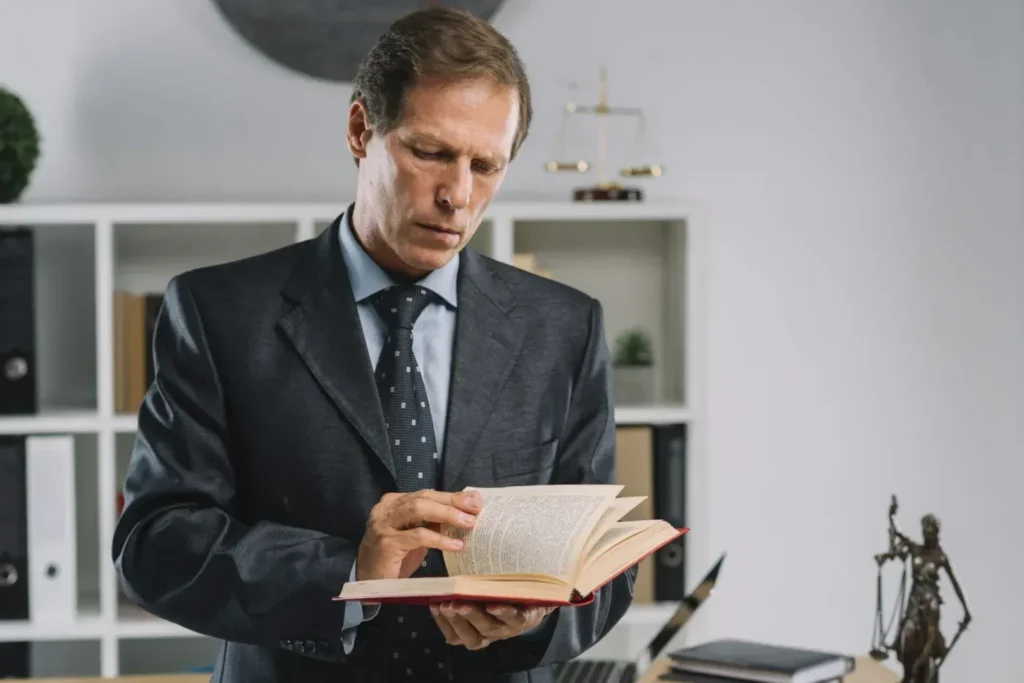Divorce Lawyers: What They Do
At ReedsAndReeds, we understand that facing a divorce can be overwhelming and emotional. Our job as experienced divorce lawyers is to guide you through this tough time with compassion and expertise. We handle everything from dividing assets to arranging child custody, ensuring you understand every step of the process. Trust us to stand by your side and fight for your best interests.
Based on the work they do, divorce lawyers help people end their marriages. They handle legal paperwork, child custody, and property division. They also give advice and represent clients in court if needed.
Role of a Divorce Lawyer
A divorce lawyer specializes in guiding clients through the complex and emotionally charged process of legally ending a marriage, often providing very important support and expert advice on matters like asset division, child custody, and spousal support.
In essence, divorce lawyers help people understand what they need to do and what their rights are when they get divorced. This includes things like who gets custody of the kids, how much spousal support is needed, and how to split property. They handle all the paperwork, talk to the other party or their lawyer, and speak for their client in court if needed.
In concise terms, they guide and support their clients through the whole process, helping them make good choices to get the best results. Divorce lawyers need to really know family law, communicate well, and be good at negotiating and defending their clients to ensure a fair outcome.
Legal Advice in Divorce Cases
In 80% of divorce cases, individuals who seek legal advice from a qualified attorney obtain more favorable settlements.
You know, a family lawyer can help with things like dividing property, deciding on child custody, and figuring out spousal support. They help you understand what you’re entitled to and what responsibilities you have under the law. Having a lawyer is important because they can fight for your interests and make sure your rights are protected during a divorce.
In basic terms, a lawyer can also help you negotiate a fair deal with your ex-spouse or represent you in court if needed.
It’s important to choose a lawyer who has experience, is trustworthy, and makes you feel comfortable. Be honest and open with your lawyer about everything that matters, and listen to their advice. Having a good lawyer can make the complicated process of divorce easier and help you get the best possible result.
Handling Divorce Paperwork
Considering earlier points, over 70% of individuals report feeling significantly stressed when navigating the complex and detailed divorce paperwork process.
Generally speaking, collect all the documents you need, like your marriage certificate and financial records. Take your time to read through them and fill out any required information carefully. Make copies for your files.
It’s a good idea to talk to a lawyer to make sure everything is filled out and submitted correctly according to your local laws. Keep everything organized in a safe place that you can easily access.
Going through this process can be emotionally tough. Honestly, lean on friends, family, or a therapist for support if you need it. Take care of yourself and take breaks to avoid getting too stressed. Keep up with your case and stay in touch with your lawyer to clear up any questions or concerns.
In short, dealing with divorce paperwork takes careful attention, organization, and emotional support. By managing your paperwork properly, you can make the process smoother and protect your legal rights.
Negotiation and Mediation
From the previous explanation, both negotiation and mediation serve as strategic approaches to dispute resolution, with negotiation offering direct party-to-party dialogue and mediation introducing a neutral third party to facilitate the conversation.
Come to think of it, negotiation is when two parties talk to each other to come to an agreement that works for both. They discuss what they want and look for ways to meet in the middle. This process needs good communication, flexibility, and the ability to listen and understand the other side.
Mediation is a bit different. It involves a neutral person called a mediator who helps the two parties talk and find a solution. The mediator doesn’t decide anything but helps the parties see each other’s points of view and explore options. In concise terms, this is often used when the situation is complicated or the parties can’t agree on their own.
Both negotiation and mediation are useful for solving conflicts without fighting. They help the parties keep control over the result and feel involved in the process. By encouraging talking, working together, and making compromises, negotiation and mediation help find solutions everyone can agree on and can improve relationships over time.
Protecting Client Rights

As mentioned briefly before, ensuring client rights is crucial for maintaining trust and ethical standards in professions providing assistance or guidance.
Largely clients have the right to keep their information private and accurate. Professionals need to get permission before accessing client details and should only share them with the right people when needed.
Clients also have the right to make informed choices about their care and treatment. Professionals should provide all important information in a way that is easy to understand. Clients should feel empowered to take an active role in their care and choose what aligns with their values and goals.
If you think about it, professionals should respect clients’ independence and dignity. This means listening to their concerns, respecting their boundaries, and standing up for their needs. It’s very important to create a safe and non-judgmental space where clients feel comfortable to speak and seek support.
In short, protecting client rights is a key part of being ethical in any profession. By respecting these rights, professionals can build trust, promote good outcomes, and ensure clients get the support they need.
The Final Analysis
Building on an earlier idea, divorce lawyers play a very important role in guiding individuals through the complex legal process of ending a marriage. From negotiating settlements to representing clients in court, their expertise helps ensure that their clients’ rights and interests are protected.
What ReedsAndReeds is fans of is, by providing legal advice, advocating on behalf of their clients, and working towards achieving the best possible outcome, divorce lawyers serve as invaluable allies during this challenging time.







